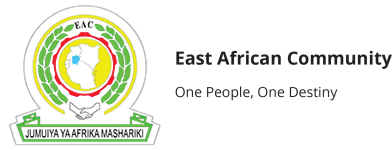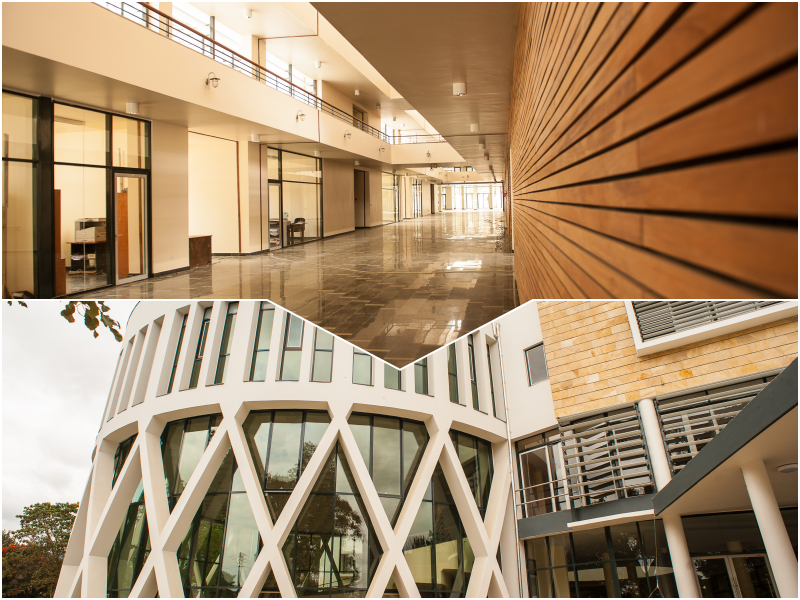Posted in About EAC
In the past, Kenya, Tanzania and Uganda have enjoyed a long history of co-operation under successive regional integration arrangements.
These arrangements have included:
- the Customs Union between Kenya and Uganda in 1917, which the then Tanganyika later joined in 1927;
- the East African High Commission (1948-1961);
- the East African Common Services Organisation (1961-1967);
- the East African Community (1967-1977) and
- the East African Co-operation (1993-2000).
Following the dissolution of the former East African Community in 1977, the Member States negotiated a Mediation Agreement for the pision of Assets and Liabilities, which they signed in 1984.
However, as one of the provisions of the Mediation Agreement, the three Member States (Kenya, Tanzania and Uganda) agreed to explore areas of future co-operation and to make concrete arrangements for such co-operation.
Subsequent meetings of the three Heads of State led to the signing of the Agreement for the Establishment of the Permanent Tripartite Commission for East African Co-operation on 30 November 1993.
Full East African Co-operation operations started on 14 March 1996 when the Secretariat of the Permanent Tripartite Commission was launched at the Headquarters of the EAC in Arusha, Tanzania.
Considering the need to consolidate regional co-operation, the East African Heads of State, at their 2nd Summit in Arusha on 29 April 1997, directed the Permanent Tripartite Commission to start the process of upgrading the Agreement establishing the Permanent Tripartite Commission for East African Co-operation into a Treaty.
The Treaty-making process, which involved negotiations among the Member States as well as wide participation of the public, was successfully concluded within 3 years.
The Treaty for the Establishment of the East African Community was signed in Arusha on 30 November 1999.
The Treaty entered into force on 7 July 2000 following the conclusion of the process of its ratification and deposit of the Instruments of Ratification with the Secretary-General by all the three Partner States.
Upon the entry into force of the Treaty, the East African Community came into being.
Milestones of EAC Integration
30 November 1993: 1st Summit of East African Heads of State sign Agreement establishing the Permanent Tripartite Commission for East African Co-operation in Kampala, Uganda.
14 March 1996: Secretariat of the Commission for East African Co-operation launched in Arusha, Tanzania.
28 April 1997: EAC Member States sign Tripartite Agreement on Avoidance of Double Taxation.
29 April 1997: 2nd Summit of the East African Co-operation Heads of State is held in Arusha, Tanzania; 1st East African Co-operation Development Strategy (1997-2000), East African Flag and East African Passport launched; and Permanent Tripartite Commission mandated to embark on process of upgrading EAC Agreement into Treaty.
30 April 1998: 9th Meeting of the Permanent Tripartite Commission in Arusha launches a draft Treaty for Establishment of the East African Community; approves programme for its wide publicity; EAC Memorandum of Understanding on Co-operation in Defence signed in Arusha; Tripartite Agreement on Road Transport signed in Arusha; and Inland Waterway Transport Agreement signed in Arusha.
30 November 1999: 4th Summit held in Arusha at which Treaty for the Establishment of the East African Community is signed.
7 July 2000: Treaty for the Establishment of the East African Community enters into force; new regional organisation, the East African Community, comes into being.
15 January 2001: 1st Summit of the East African Community is held in Arusha; signs Protocols on: Rules of Procedure for the Summit of Heads of State; Rules of Procedure for the Admission of other countries to the East African Community; and formally launches the East African Community at the Sheikh Amri Abeid Stadium in Arusha.
30 November 2001: 3rd Summit of EAC held in Arusha; EAC Heads of State inaugurate East African Legislative Assembly and East African Court of Justice.
2 March 2004: EAC Summit signs Protocol for Establishment of the EAC Customs Union.
1 January 2005: EAC Customs Union becomes operational.
18 June 2007: The Republic of Rwanda and the Republic of Burundi accede to EAC Treaty.
1 July 2007: Rwanda and Burundi become full members of the EAC.
5 June 2007: Second Assembly (EALA) sworn in.
22 October 2008: First EAC-COMESA-SADC Tripartite Summit held in Kampala, Uganda. Discusses single Free Trade Area and merger of the three regional blocs.
1 July 2009: Rwanda and Burundi join the EAC Customs Union. Official launch ceremonies held simultaneously in the two countries’ capitals on 6 July 2009.
20 November 2009: Protocol for the Establishment of the EAC Common Market signed; climax of observance of EAC 10th Anniversary celebrations; laying of foundation stone for EAC Headquarters in Arusha.
1 January 2010: EAC’s fully-fledged Customs Union takes effect following the end of a five-year transitional period.
1 July 2010: EAC Common Market Protocol enters into force, following ratification by all the five EAC Partner States.
3 December 2010: EAC Summit of Heads of State adopts the EAC Anthem.
12 June 2011: Second COMESA-EAC-SADC Tripartite Summit held in Johannesburg, South Africa; agrees to start negotiations for a Grand Free Trade Area among the three blocs.
5 June 2012: Third Assembly (EALA) sworn in.
28 November 2012: Presidents of the EAC Partner States officially inaugurate the new EAC Headquarters in Arusha.
30 November 2013: Protocol for the Establishment of the EAC Monetary Union signed.
16 April 2016: The Republic of South Sudan joins the EAC.
5 September 2016: The Republic of South Sudan becomes a full member of the EAC.
19 December 2017: Fourth Assembly (EALA) sworn in.
8 April 2022: The Democratic of Congo joins the EAC.
11 July 2022: The Democratic Republic of Congo becomes a full member of the EAC.
20 December 2022: Fifth Assembly (EALA) sworn in.
24 November 2023: The EAC Summit of Heads of State admits the Federal Republic of Somalia into the Community.
Posted in About EAC
The Community has a number of semi-autonomous institutions that help it implement its mandate. These EAC institutions include:
The Civil Aviation Safety and Security Oversight Agency works in the civil aviation sector towards air transport services that are safe, efficient and profitable as well as adoption of common policies and harmonisation of civil aviation rules and regulations.
For more information, please visit the CASSOA website.
The East African Community Competition Authority (EACA), which is an institution of EAC is mandated to promote and protect fair trade and to ensure consumer welfare in the community pursuant to EAC Competition Act, 2006.
Specifically, the Act is aimed at enhancing the welfare of the people of the Community by:
- Protecting all market participants freedom to compete by prohibiting anticompetitive practices
- Protecting the opening of partner states markets against creation of barriers to interstate trade and economic transactions by market participants
- Guaranteeing equal opportunities for market participants in the Community - SMEs
- Guaranteeing a level playing field –eliminating any discrimination by partner states on the basis of nationality or residence
- Providing consumers access o products and services at competitive prices and better quality
- Providing incentives to producers – improvement of production and products through technical and organizational innovation
- Promoting economic integration and development in the community by creating a conducive environment for investment in the community and bringing the EAC competition policy and law in line with international best practice.
For more information, please visit the EACA website.
The East African Development Bank offers structured financial products and services to organisations in the health, education, hospitality and tourism, infrastructure development, energy and utilities, and agriculture sectors.
For more information, please visit the EADB website.
The East African Health Research Commission coordinates and maps out a regional agenda on health research as well as the translation of its results into policy and practice within the Partner States.
For more information, please visit the EA Health Portal
The East African Kiswahili Commission coordinates and provides advice to the Partner States on all matters related to Kiswahili research, teaching, learning and development as the lingua franca of the Partner States.
For more information, please visit the EAKC Website
The East African Science and Technology Commission governs the Partner States co-operation in the development and implementation of Science and Technology.
For more information, please visit the EASTECO Website
The Inter-University Council for East Africa coordinates harmonisation of higher education and training systems in East Africa, facilitates their strategic development and promotes internationally comparable standards and systems.
For more information, please visit the IUCEA website.
The Lake Victoria Basin Commission focusses on coordinating the various interventions on the Lake and its Basin.
For more information, please visit the LVBC website.
The Lake Victoria Fisheries Organization promotes sustainable utilisation of fisheries of the Lake.
For more information, please visit the LVFO website.

